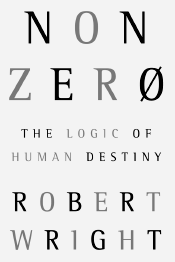An excellent editorial by Robert Wright in The New York Times about globalization. He does a wonderful job of showing how globalization is far from a new development, yet one that presents new challanges. Here’s a excerpt:
Globalization dates back to prehistory, when the technologically driven expansion of commerce began. Early advances in transportation — roads, wheels, boats — were used to do deals (when they weren’t used to fight wars). So too with information technology. Writing seems to have evolved in Mesopotamia as a recorder of debts. Later, in the form of contracts, it would lubricate long-distance trade.
All this is grounded in human nature. People instinctively play nonzero-sum games — games, like economic exchange, in which both players can win. And technological advance lets them play more complex games over longer distances. Hence globalization.
What makes globalization precarious is that nonzero-sum relationships typically have a downside: both players can lose as well as win. Their fortunes are correlated, their fates partly shared, for better or worse. As a web of commerce expands and thickens, this interdependence deepens. The ancient world saw prosperity spread but also saw vast downturns — like collapse across the eastern Mediterranean around 1200 B.C.
I’m going to have to get off my butt and read Robert Wright’s book Nonzero: The Logic of Human Destiny. I also just realized that the book even has its own Web site.

